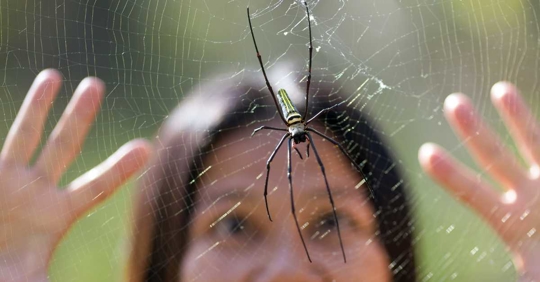As the vibrant colors of autumn begin to paint the landscapes of Syracuse and Central New York, many homeowners might notice an unwelcome increase in tiny, eight-legged residents sharing their living spaces. It's a common phenomenon, and if you’ve wondered why your home suddenly seems to be hosting more spiders than usual, you’re not alone.
The crisp fall air and changing seasons bring about natural shifts in insect behavior, and spiders are no exception. This post will help you understand the reasons behind this seasonal influx and provide practical advice on how to manage these industrious creatures in your Syracuse home.
Feeling a little creeped out by those extra spiders? Don't wait for them to multiply! Take action now and explore our spider control solutions to help manage these unwanted guests.
Understanding the Seasonal Spider Influx in Syracuse Homes
Spiders, much like other wildlife, are highly attuned to environmental changes. As summer transitions into fall, several factors contribute to their increased presence indoors. It's not that your home is suddenly more appealing; rather, external conditions are prompting them to seek new shelter and resources.
The Great Migration: Seeking Shelter from the Cold
One of the primary drivers of increased indoor spider activity during autumn is the dropping temperatures. Spiders are cold-blooded creatures, meaning their body temperature is regulated by their environment. As the nights grow colder and the first frosts approach, outdoor conditions become less hospitable.
Your warm, insulated home offers a welcome refuge from the plummeting mercury, providing a stable environment where they can survive the colder months. This is particularly true for many common house spider species that are well-adapted to indoor living once they find their way inside.
The Search for Mates: A Fall Phenomenon
Autumn is also mating season for many spider species. This is often why you might see larger, more noticeable spiders scuttling across your floors or walls. Male spiders, driven by instinct, become more active and adventurous in their search for a mate. They are less focused on finding food or building webs and more on finding a female, which can lead them to wander into areas they might otherwise avoid, including your living room.
Once they have mated, female spiders will then seek out safe, secluded places to lay their egg sacs, further cementing their presence within your home if left undisturbed.
Following the Food: An Abundant Indoor Larder
Where there are spiders, there is usually food. While spiders don’t actively hunt for your pantry staples, they are predators of other insects. As other common household pests like flies, ants, and various beetles also seek shelter indoors during the fall, spiders follow their food source.
Suppose your home has a thriving population of other insects. In that case, it inadvertently becomes an attractive hunting ground for spiders, making it a desirable location for them to set up their webs and wait for their next meal.
Accidental Entry: The Unintentional Tourists
Sometimes, spiders simply end up in your home by accident. They can slip through cracks in foundations, gaps around windows and doors, or even hitch a ride on firewood, plants, or outdoor furniture brought inside.
As they become more active in their autumnal migrations and mating rituals, their chances of inadvertently finding a way into your home increase. A small opening is all it takes for these agile creatures to enter, making prevention a key strategy in keeping them out.
Proactive Steps for Syracuse Homeowners
While a few spiders are harmless and can even be beneficial by preying on other insects, an overabundance can be unsettling. The good news is there are many practical steps you can take to make your home less appealing to spiders and reduce their indoor presence. Consider these helpful tips to minimize spider activity in your Syracuse home:
- Seal Entry Points: Inspect your home for any cracks or gaps in foundations, around windows and doors, and where utility lines enter the house. Seal these openings with caulk, weatherstripping, or appropriate sealants. Even small gaps can be an invitation for spiders.
- Declutter Regularly: Spiders love clutter as it provides ample hiding spots and undisturbed areas for them to build webs. Regularly decluttering storage areas, basements, attics, and even less-used rooms can significantly reduce potential spider habitats.
- Reduce Outdoor Attractants: Keep vegetation, woodpiles, and debris away from your home's foundation. These can serve as harborage for spiders and other insects, increasing their likelihood of migrating indoors.
- Improve Lighting: Many insects are attracted to outdoor lights, and spiders follow their prey. Consider using yellow or sodium vapor lights outdoors, which are less attractive to insects, or draw curtains and blinds at night to minimize light spill from inside your home.
- Vacuum Frequently: Regular vacuuming, especially in corners, under furniture, and along baseboards, can help remove spiders, their webs, and egg sacs. This also removes other small insects that spiders feed on.
- Address Other Pests: Since spiders often follow their food source, addressing any other ongoing insect infestations in your home can indirectly help reduce the spider population.
Get Local Help With Spider Control in Syracuse
While taking proactive measures can certainly help, sometimes, despite your best efforts, the spider population in your home can feel overwhelming. Or perhaps you're dealing with a specific type of spider that causes concern. That's when it’s time to consider professional assistance.
At All Pest of Syracuse, we understand that dealing with spiders can be unsettling, and we're here to offer reassuring and effective solutions. Our experienced team can identify common entry points, assess the extent of the spider activity, and implement targeted treatments designed to manage the problem without disrupting your daily life.
If you’re noticing an unusual number of spiders and are looking for friendly, expert assistance, don’t hesitate to reach out to us through our online contact form or call us at (315) 784-8215. We’re here to help you find practical and lasting pest control solutions.

